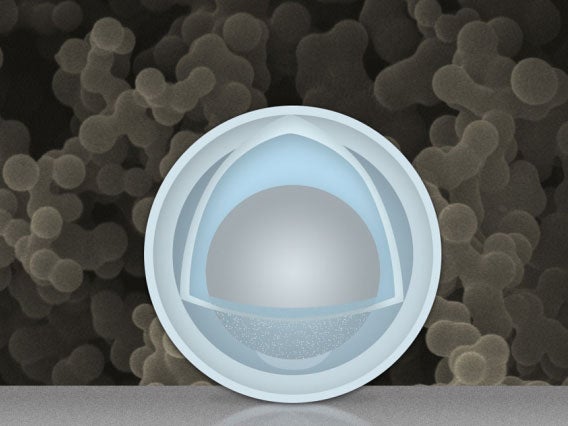Nanoparticles with aluminium ‘yolks’ could enhance the life-span of rechargeable batteries
Researchers develop innovative, high-capacity anode comprised of egg-shaped nanoparticles in “a chance discovery”

Mobile phone batteries of the future could have hugely upgraded capacity and lifespans, thanks to aluminium 'yolks' inside batteries.
By creating an electrode consisting of nanoparticles with a solid shell and an internal ‘yolk’, the scientists have reportedly solved an issue with current rechargeable batteries that sees performance significantly deteriorate after repeated charges.
According to their findings, their newly developed lithium-ion battery is far more resistant to the damage caused by frequent charge cycles. While current electrodes degrade over time after growing and shrinking in size over multiple charges, the aluminium ‘yolk’ filling of the newly designed nanoparticles would allow for increased growth which causes less damage to their titanium-dioxide shells.
Not only could this new technology introduce rechargeable batteries with longer life-spans, it could also have an effect on how long future batteries hold out between each charge.
While still only a lab experiment at present, the scientists at work on the technology have expressed confidence in the research due to the relative low-cost of the materials and the simplicity of the manufacturing method.
“These yolk-shell particles show very impressive performance in lab-scale testing,” explains David Lou, an Associate Professor at Nanyang Technological University in Singapore. “To me, the most attractive point of this work is that the process appears simple and scalable.”
Join our commenting forum
Join thought-provoking conversations, follow other Independent readers and see their replies
Comments
Bookmark popover
Removed from bookmarks